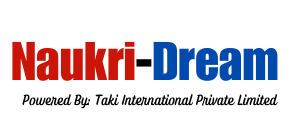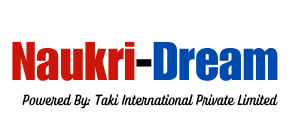Design
10 Tips Interview Related How To Make a Future
Practice: Doing mock interviews with a friend or mentor can help ease nerves and refine your delivery.Stay calm: If you don’t know the answer to a question, it’s okay to pause and think. You can even ask for clarification if needed
1. Do Your Research
- Know the company: Study the company's mission, values, products/services, culture, and any recent news or updates. Visit their website, LinkedIn profile, and social media pages.
- Understand the role: Review the job description carefully. Align your experience, skills, and strengths with the specific requirements of the position.
2. Prepare Your Story
- Craft your narrative: Be ready to tell your career story in a way that demonstrates how your skills, experiences, and passion align with the job. Use the STAR method (Situation, Task, Action, Result) to describe past achievements.
- Highlight relevant experience: Focus on the experiences that directly relate to the job you’re applying for. Show how they’ve prepared you to succeed in this role.
3. Perfect Your First Impression
- Dress appropriately: Choose an outfit that is professional and suitable for the company’s culture. If in doubt, lean toward business casual or business professional.
- Arrive early: Arriving 10-15 minutes early shows punctuality and enthusiasm. It gives you time to settle and prepare mentally.
- Smile and shake hands confidently: A firm handshake and a warm smile create an immediate positive impression.
4. Master the Body Language
- Maintain good posture: Sit up straight, making eye contact, and avoid slouching. This conveys confidence and attentiveness.
- Be an active listener: Nod occasionally, maintain eye contact, and show engagement through facial expressions. It makes you come across as thoughtful and involved.
- Avoid distractions: Keep your phone silent and out of sight. Don't fidget or cross your arms, as it can make you seem distracted or closed off.
5. Ask Insightful Questions
- Show curiosity: Prepare a few questions to ask the interviewer about the company, the team, or the role. Examples include:
- "What does success look like in this position?"
- "How do you measure performance and growth in this role?"
- "What’s the team culture like?"
- Avoid asking questions that can be answered on the company website or that are purely about salary and benefits at the start.
6. Emphasize Cultural Fit
- Connect with company values: Show that you’re not only a good fit for the role but also for the company’s culture. Mention how your values align with theirs and demonstrate a long-term commitment to contributing to that culture.
- Demonstrate adaptability: Showcase examples of how you’ve thrived in different work environments or with diverse teams.
7. Be Clear About What You Bring to the Table
- Focus on impact: Highlight your unique contributions and successes in previous roles. Quantify them where possible (e.g., "I helped increase sales by 20% in six months").
- Show how you can solve their problems: Make it clear how you will add value. Speak to the company’s challenges and how your expertise can help solve them.
8. Be Positive and Confident
- Stay upbeat: Approach the interview with a positive mindset, even if you’re nervous. Employers appreciate enthusiasm and optimism.
- Confidence without arrogance: While it’s essential to be confident in your abilities, make sure you don’t come across as overly self-assured or dismissive of the company or the role.
9. Follow Up with a Thank-You Note
- Send a personalized thank-you email: Within 24 hours of the interview, send a brief note thanking the interviewer for their time. Reinforce your interest in the position and highlight one or two points from the conversation that were particularly meaningful.
10. Be Yourself
- Authenticity matters: Don't try to be someone you're not in the interview. Employers value honesty and integrity. Let your personality come through—this helps both you and the employer determine if it’s the right fit.

